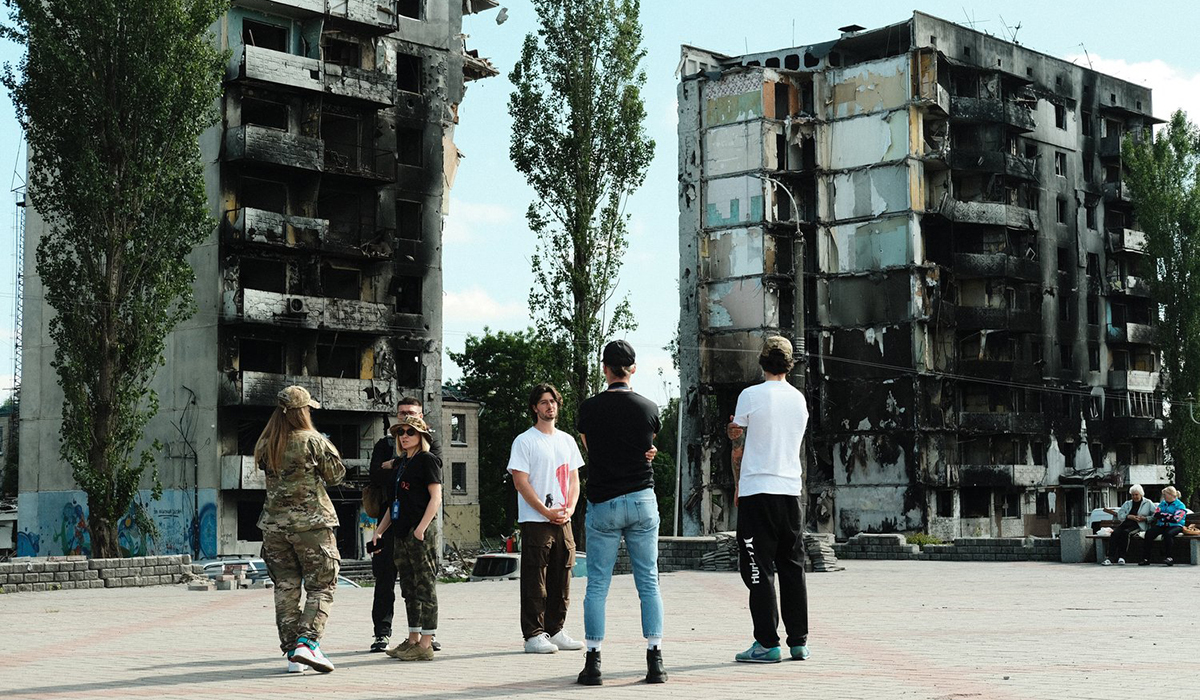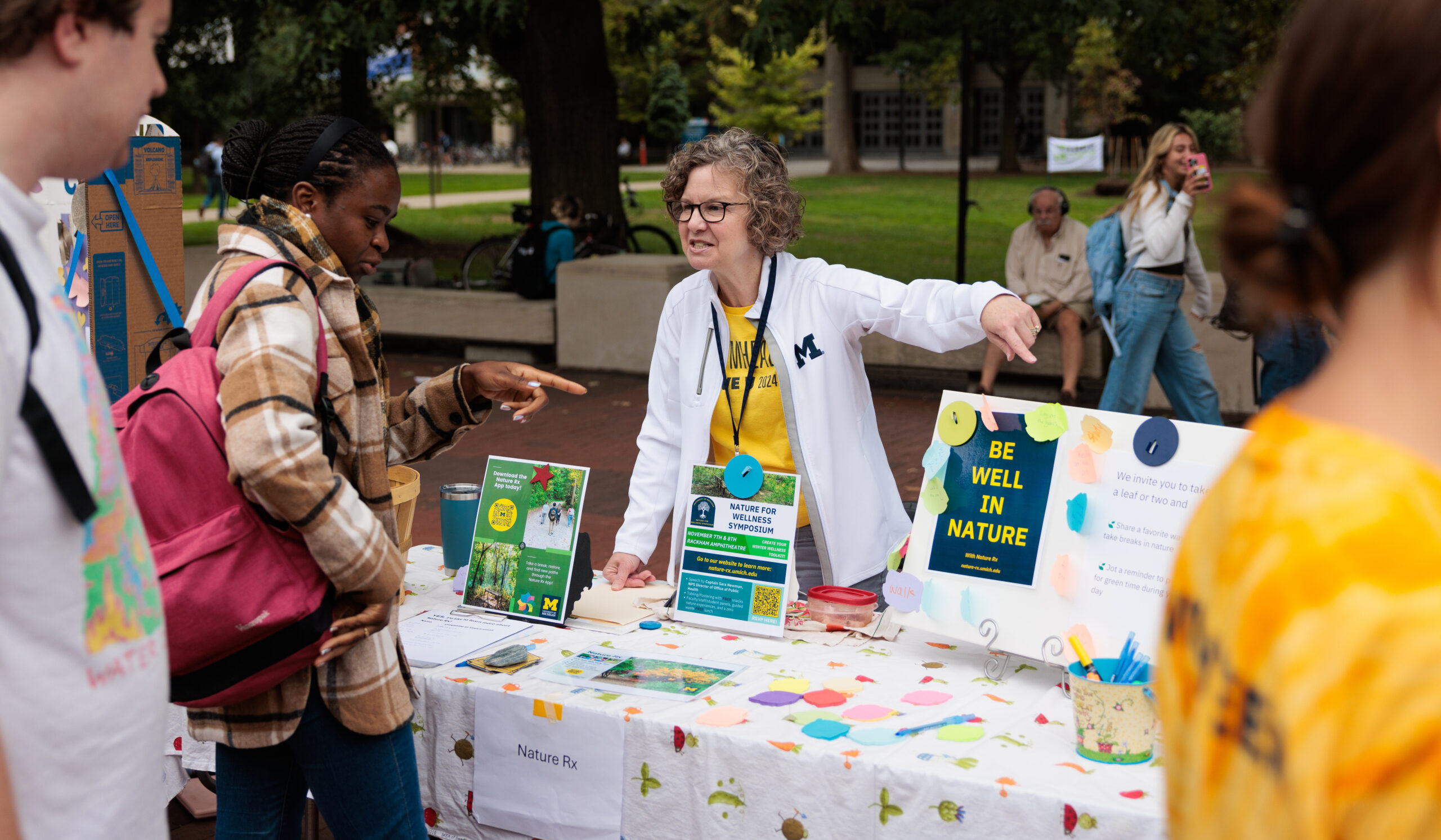Like many on February 24, 2022, Dustin Ross, ’18, watched the start of Russia’s invasion of Ukraine in horror, aware that he was seeing a chapter in world history unfolding in real-time.
“I spent the first day obsessively reading the news, I spent the second day obsessively reading the news. […] And, on the third day, something clicked. And what clicked was: I’ve got to do something,” he says.
Dustin was living in Los Angeles and spent the next month reaching out to any large organization he could think of that would be active in aid efforts for the Ukrainian people. Disappointingly, he was met with either silence or money-only donation propositions.
“I wanted to do so much more,” he says.
Dustin initially flew to Romania, then Poland, then made his way to Ukraine (the first of six trips, to date), where he met, helped, and was inspired by people and organizations with direct involvement in frontline relief efforts.
Dustin spent his own money buying supplies for these Ukrainian organizations; his friends, who kept up with the situation through his Instagram posts, donated money; then more people with more money wanted to contribute as well. Soon, Sunflower Network was born and registered as a 501(c)(3) nonprofit organization, its name inspired by the ubiquitous Ukrainian cultural symbol.
“All of what we do is rooted in the core of our enterprise: making a difference in the lives of those in need,” says Dustin, who has served full-time as the organization’s CEO since founding it in March 2022.
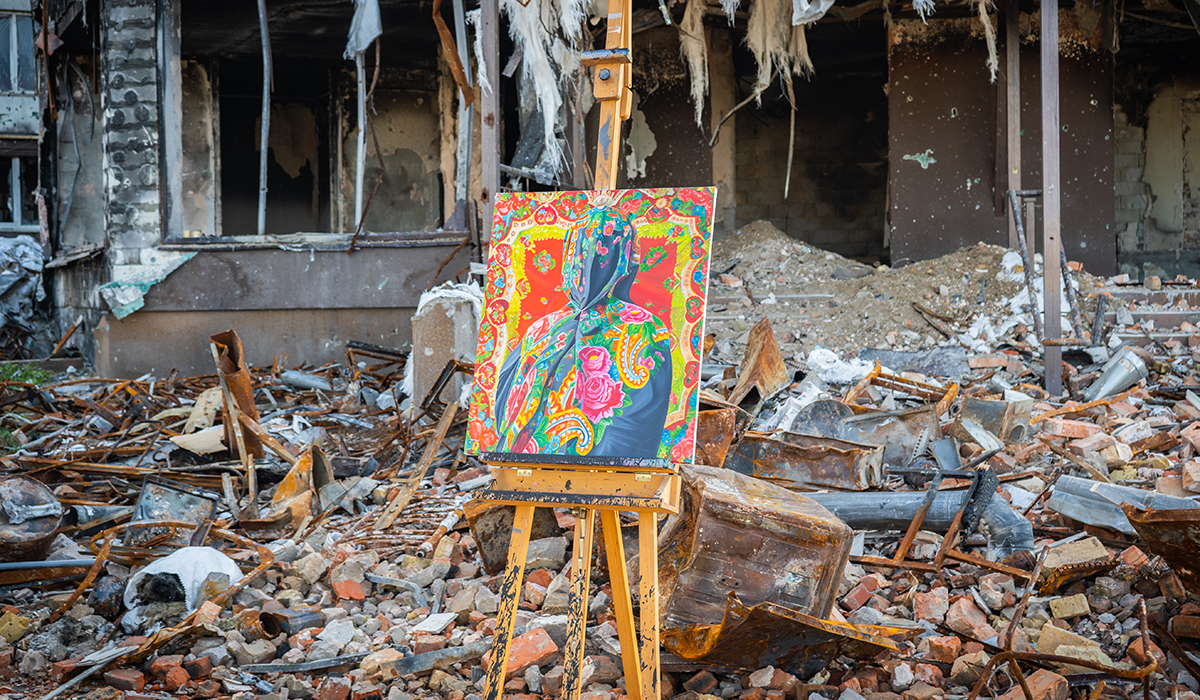
Dustin’s younger brother Dean Ross, ’21, serves as Sunflower Network’s director of operations.
“On his third trip to Ukraine, Dustin brought my roommate, Jack Chase, ‘21, as a photographer,” says Dean. “Jack’s dad is an art gallerist, so Jack had this predisposed thought process about using cultural commodities to raise money.” Most of the Ukrainian contacts with whom the group was coordinating aid deliveries, in fact, were working artists. When Jack returned, he told Dean they wanted to open an art gallery.
“It was an idea that I had on my first trip to Ukraine that was made possible by the friendships I built at Michigan,” says Chase.
Chase reached out to others, including his friend Zach Steinfeld, ’22, who has experience in business development and was immediately excited about the idea.
“The next day, I show up at an old hair salon in the heart of New York’s Ukrainian Village. We were painting, on our knees pulling hair from our gutters … but I felt the energy of what we were doing to my core,” says Steinfeld, who now serves as Sunflower Network’s director of development.
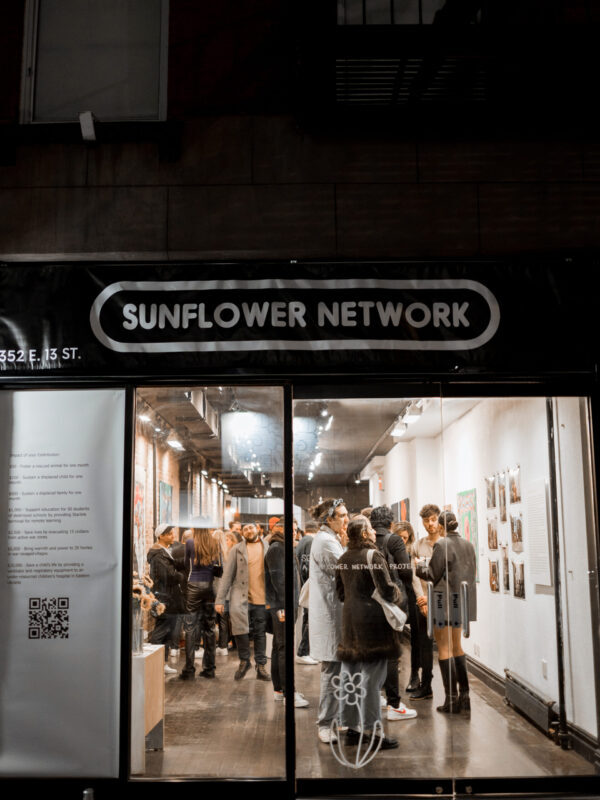
That first pop-up gallery installation, “Sonya: A Sunflower Network Project,” ran for three weeks in November 2022, spotlighting and selling 30 works from 11 Ukrainian artists. The opening attracted over 800 attendees and the exhibition raised over $200,000. Proceeds were used for the purchase and delivery of generators back to Ukraine, where Russian attacks on the country’s infrastructure created blackouts affecting millions of people in the winter cold.
More events have followed in New York and Los Angeles, all featuring Ukrainian artists, musicians, and fashion designers. To date, Sunflower Network’s efforts have delivered over $3 million in aid to Ukrainians to provide items including food, hygiene products, four-wheel drive vehicles, ambulances, and more.
But the organization is working toward making an even bigger impact. Sunflower Network has launched Project Horizon: a collaborative initiative between itself, the city of Brody in Ukraine, and international partners to build a World Health Organization-standard health care facility in Brody. Supporting organizations include UCLA Health, CannonDesign, and law firm Baker Botts. Project Horizon is scheduled to break ground in early 2024. It will be the first public-private partnership to build health care infrastructure in Ukraine since the start of the war.
“No problem is too big to solve,” says Barrett Baker, ’21, Sunflower Network’s lead for Project Horizon. “We’ve gone from identifying a healthcare crisis in a country at war and breaking that down into a solvable problem, that we’ve broken down into steps to get from here to actually creating a facility to provide help to people that really need it.”
“Notwithstanding, our team is based in NYC; we wanted to create a solution that endured despite where we all were located in the world.”
Sunflower Network is just as much about empowering the people donating their time and energy to affect change, however, as it is about the aid itself.
Emma Bernstein, ’18, attended U-M alongside Dustin, but the two friends re-connected after she saw Dustin’s first Ukrainian trip on social media. As a senior marketing manager, Bernstein applies her experience to help grow the nonprofit.
“Not only does Sunflower Network deliver impactful aid in Ukraine, but we also build community in the U.S. through our arts, culture, and fashion events to bring people together,” she says. “I really enjoy watching young Americans latch on to the Sunflower Network initiative and our community, whether as full-time staff or volunteers, and watching them grow.”
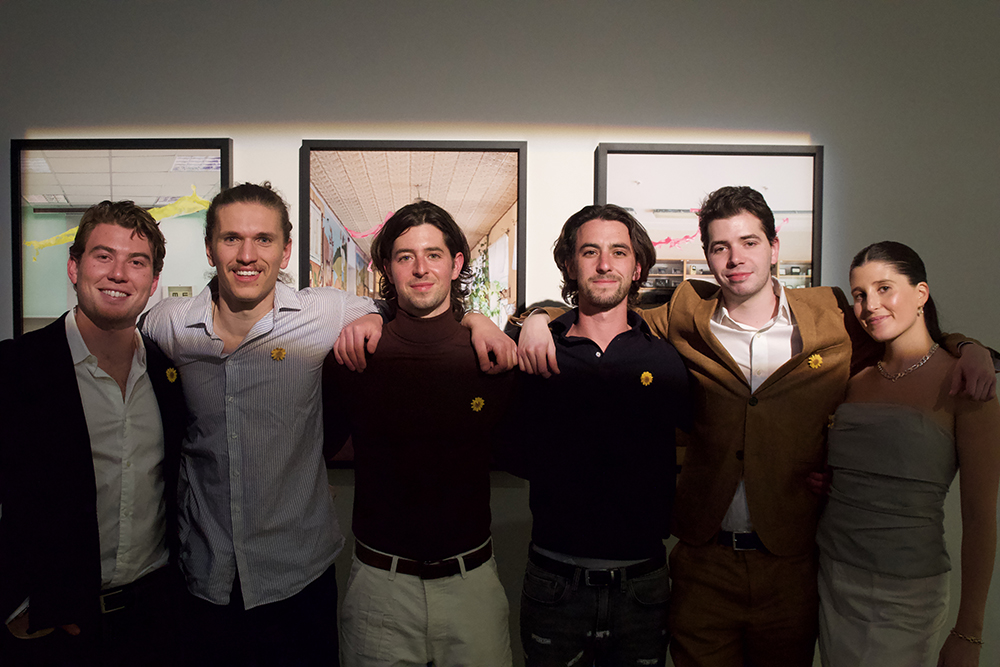
Sunflower Network is always eager to work with students and alumni, no matter where they are or how they want to contribute.
“[This crisis] spurred me to think about the importance of service in my own life,” Dustin Ross says. “But it was so hard to get involved. It took me getting on a plane to go figure that out. Something that’s very important to me with Sunflower Network is giving people the opportunity to get involved in meaningful work in a way that speaks to their own unique talents, strengths, skills, and interests.
It’s the most effective way to respond and create change.”
To find more news, contact information, and ways to support Sunflower Network, visit www.sunflowernetwork.io.
Gregory Lucas-Myers, ’10, is the senior associate editor of Michigan Alum.
Editor’s Note: This article has been updated with additional images and information from the Fall ’23 issue of Michigan Alum magazine.

